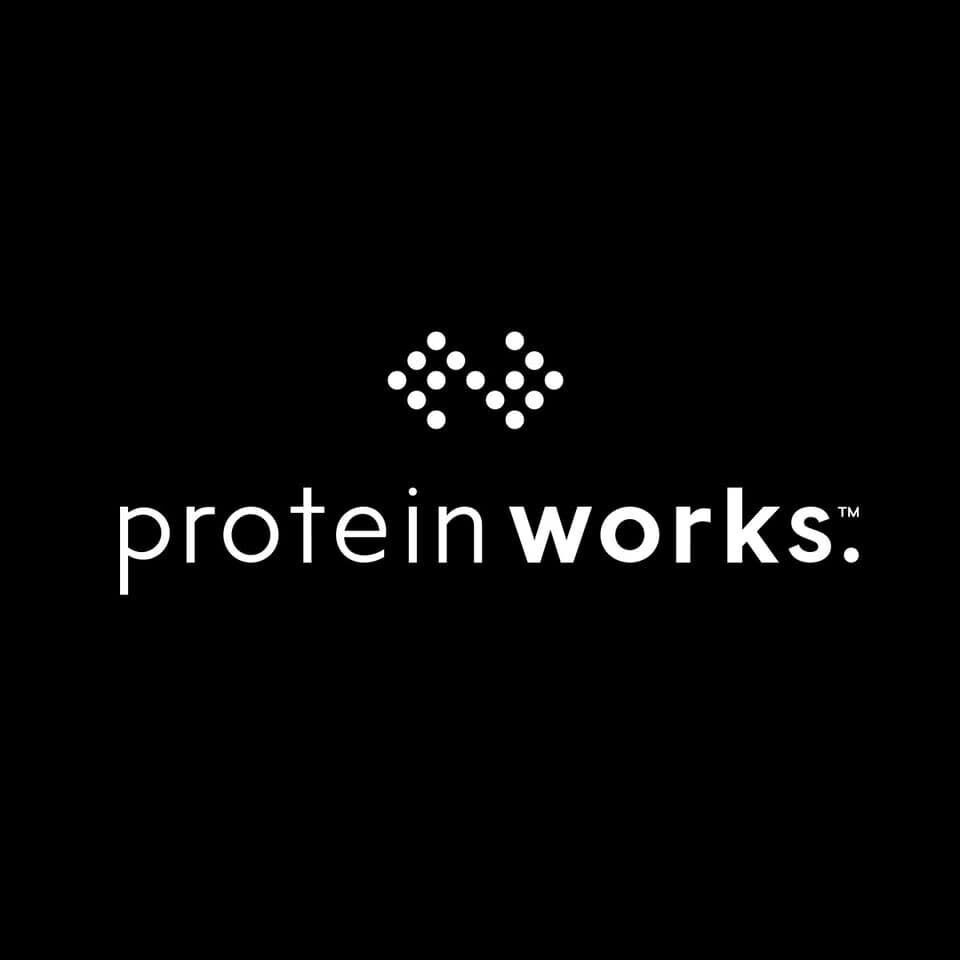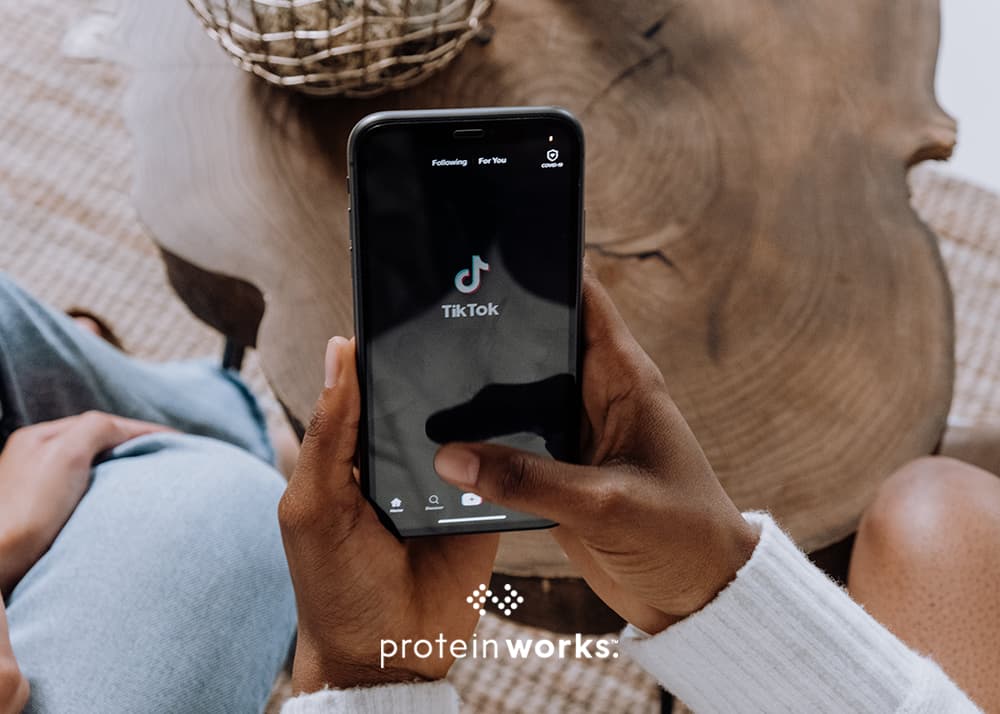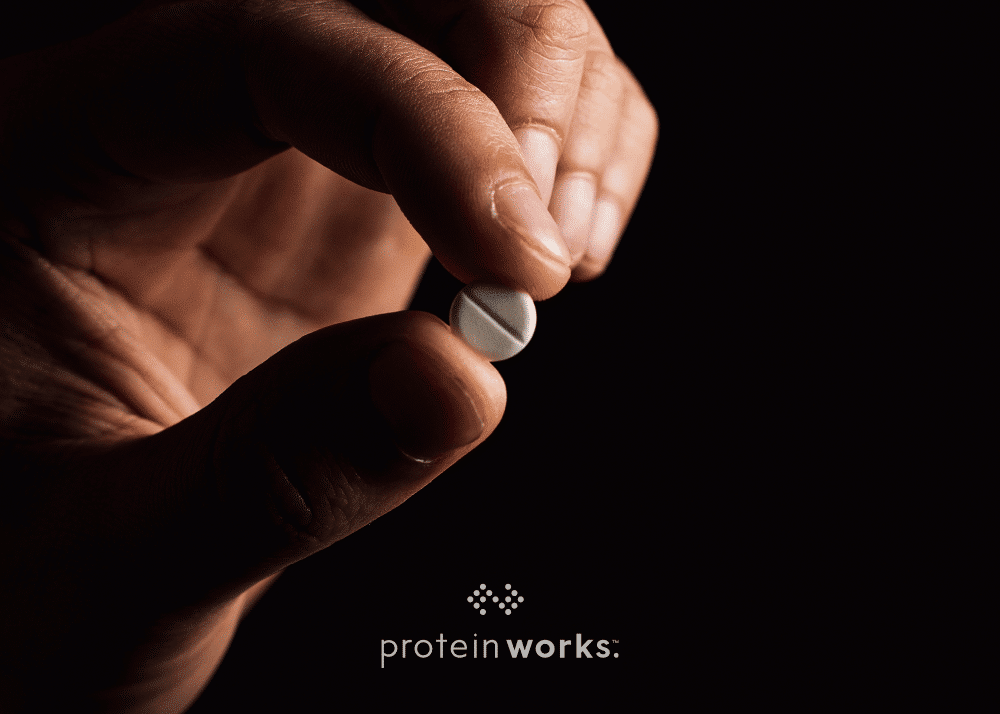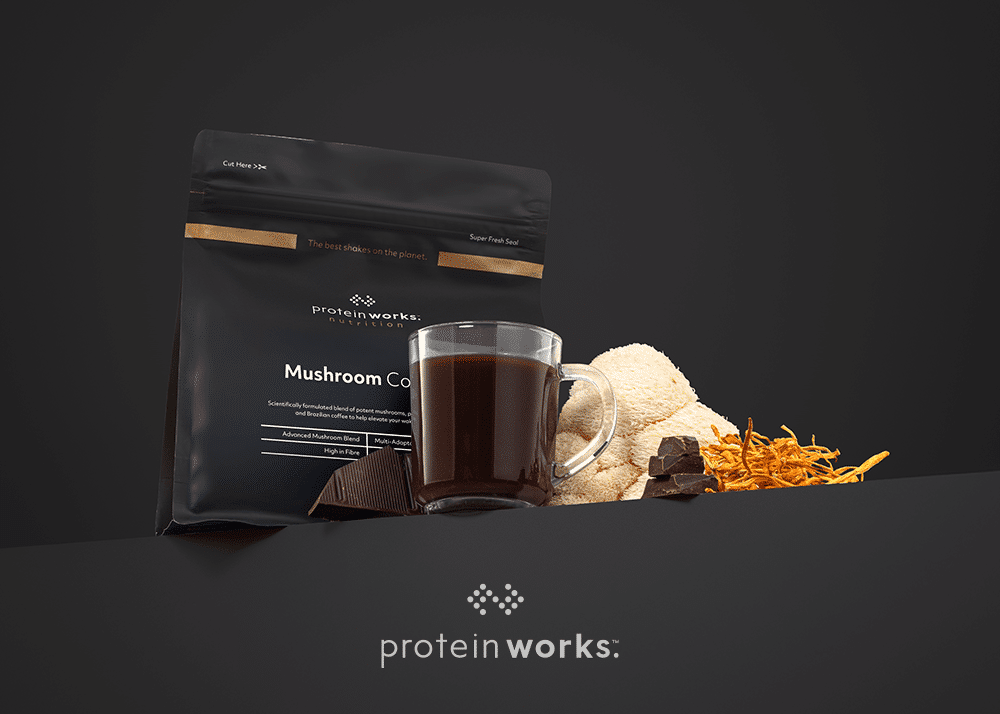
How One Healthy Swap Can Make A Big Impact
Making changes to your lifestyle can feel completely overwhelming! So, what if we told you that making just one small swap can have hugely positive outcomes for your health and the environment? We’ve come up with a few to get you started, choose one which seems the least daunting and easiest to slot into your routine.
Snack on protein
Picking a snack which contains at least 10-15g of protein will help you feel fuller for longer, so you won’t be sneaking back to the fridge 5 minutes later! Having an afternoon snack, such as Greek yogurt, has been found to increase fullness, reduce hunger and delay the onset of subsequent eating [1]. If you are looking for something for when you’re on-the-go, a great choice is our Loaded Legends. These are only 187kcal and have a whopping 15g of protein, so you really don’t have to compromise on taste.
 Grab a smaller plate
Grab a smaller plate
This old trick truly works! It has been found that doubling a plate in size increases the amount consumed by 41%, and the size has a substantial effect on the amount served [2]. The same size portion looks much larger on a smaller plate, and therefore helps you to feel full. Tuning into your internal signals rather than focusing on clearing everything on the plate means you are less likely to continue eating once full. There is no harm in going back for seconds if you’re still hungry, leave it 15 minutes and go for a yogurt and fruit-based dessert if you are looking for a lighter option.
Replace meaty meals
Eating less meat has been linked to a reduction in cardiovascular diseases, cancer and dementia. Furthermore, gastrointestinal health benefits have been found due to the increase in fibre in the diet [3]. Meat-free Mondays are a concept introduced by Paul, Stella and Mary McCartney in 2009 [4]. They strived to inspire people to commit to one plant-based day per week, subsequently reducing negative impacts on the environment and their own personal health. This idea is a great starting point for reducing meat intake, and plant-based options certainly don’t need to be boring. Monday might just become your favourite day of the week!
Eat with family
Research shows that eating as a family is associated with healthy eating habits, improved diet and an increase in intake of fruit, vegetables and grains [5]. There is mounting evidence that distractions, such as watching TV whilst eating, cause a loss of awareness of hunger signals and affects our memory. This leads to disinhibited eating and overconsumption later in the day, so it is important to be present at mealtimes [6].
 Use the Complete 360 Meal
Use the Complete 360 Meal
Swapping one meal per day for our Complete 360 Meal is not only great for those of us who are tracking our calories but is also excellent for people who struggle to meet recommended nutritional guidelines. It has a balanced composition of macronutrients, as well as 25 vitamins and minerals – it’s no wonder they call it the future of fast food!
Decaf drinks after 2pm
Caffeine can cause nutrient depletion in vitamin B6 and inhibit absorption of calcium and iron [7]. If you can’t go without your daily coffee, don’t worry there is no need for you to give this up. There are some benefits to caffeine consumption and up to 400mg per day is considered safe for a healthy adult [8]. Ensure that caffeine is consumed earlier in the day to prevent interference with sleep quantity and quality [9].
Get a standing desk
Many of us are leading increasingly sedentary lifestyles, however it has been found that the negative effects of sitting can be reduced by getting a standing desk. Studies have found that lower back pain, which is prevalent in office workers, is alleviated after just a few weeks of use [10]. Furthermore, increased alertness and enthusiasm has been shown after adopting standing desks, leading to better mental health outcomes [11].
2020 has been tough for all of us, so congratulations for getting through it! Start the new year with your best foot forward by embracing a change which feels manageable for you. You might just see a massive difference with minimal effort!
Douglas, S.M., Ortinau, L.C., Hoertel, H.A. and Leidy, H.J., 2013. Low, moderate, or high protein yogurt snacks on appetite control and subsequent eating in healthy women. Appetite, 60, pp.117-122.
Holden, S.S., Zlatevska, N. and Dubelaar, C., 2016. Whether smaller plates reduce consumption depends on who’s serving and who’s looking: a meta-analysis. Journal of the Association for Consumer Research, 1(1), pp.134-146.
Marshall, P. and Marinova, D., 2019. Health benefits of eating more plant foods and less meat. In Environmental, Health, and Business Opportunities in the New Meat Alternatives Market (pp. 38-61). IGI Global.
Meat Free Monday. 2020. About – Meat Free Monday. [online] Available at: <https://www.meatfreemondays.com/about/> [Accessed 17 December 2020].
Villares, J.M. and Segovia, M.G., 2006. The family meal: somewhat more than eating together. Acta Pediatrica Espanola, 64(11), p.554.
Higgs, S. and Spetter, M.S., 2018. Cognitive control of eating: the role of memory in appetite and weight gain. Current obesity reports, 7(1), pp.50-59.
Wolde, T., 2014. Effects of caffeine on health and nutrition: A Review. Food Science and Quality Management, 30, pp.59-65.
Higdon, J.V. and Frei, B., 2006. Coffee and health: a review of recent human research. Critical reviews in food science and nutrition, 46(2), pp.101-123.
Shilo, L., Sabbah, H., Hadari, R., Kovatz, S., Weinberg, U., Dolev, S., Dagan, Y. and Shenkman, L., 2002. The effects of coffee consumption on sleep and melatonin secretion. Sleep medicine, 3(3), pp.271-273.
Ognibene, G.T., Torres, W., von Eyben, R. and Horst, K.C., 2016. Impact of a sit-stand workstation on chronic low back pain: results of a randomized trial. Journal of occupational and environmental medicine, 58(3), pp.287-293.
Finch, L.E., Tomiyama, A.J. and Ward, A., 2017. Taking a stand: the effects of standing desks on task performance and engagement. International journal of environmental research and public health, 14(8), p.939.


 Grab a smaller plate
Grab a smaller plate Use the Complete 360 Meal
Use the Complete 360 Meal



No Comments yet!